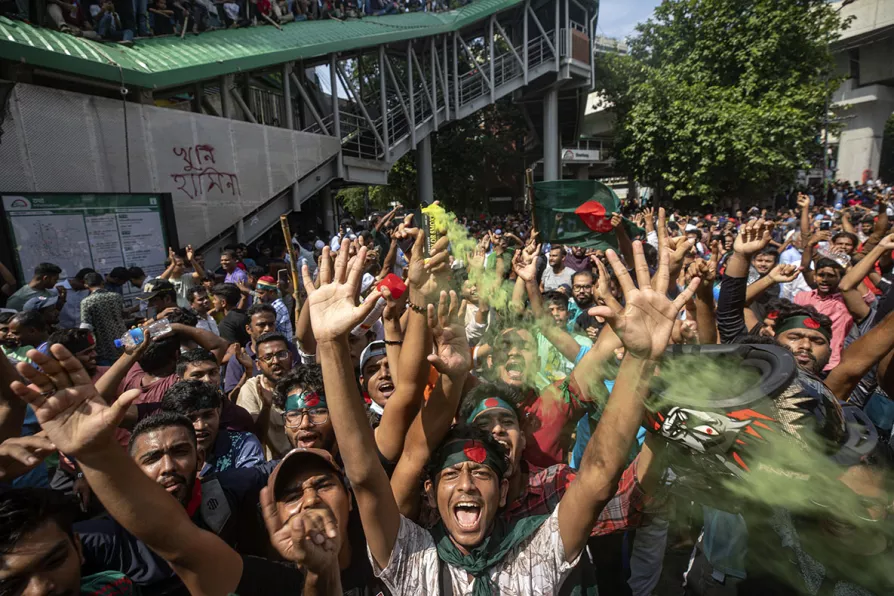
 Protesters shout slogans as they celebrate Prime Minister Sheikh Hasina's resignation, in Dhaka, Bangladesh, August 5, 2024
Protesters shout slogans as they celebrate Prime Minister Sheikh Hasina's resignation, in Dhaka, Bangladesh, August 5, 2024
BANGLADESH’S President Mohammed Shahabuddin dissolved parliament today to allow a fresh general election following the overthrow of prime minister Sheikh Hasina on Monday.
Mr Shahabuddin also lifted the house arrest of opposition politician Khaleda Zia, which had been in place since 2018, as crowds partied in the streets and took selfies in the official residence of the premier, who resigned and fled to India on Monday morning following weeks of protests she had sought to suppress with mass arrests and the killing of hundreds of demonstrators.
Protest leaders said they would not allow a military-backed government to take interim control, as had been suggested by army chief General Waker uz-Zaman on Monday.
And the Communist Party of Bangladesh urged the revolutionary movement to continue “until full democratic rights are achieved,” warning “the victory of the people must not be appropriated by different sectors,” such as the military or elements of the discredited political elite.
“Everyone has a role in protecting peace, order and lives” in the interim, it stressed, after the Bangladesh Police Association announced a nationwide strike.
The police are widely blamed for the lethal violence meted out to student-led protests, initially over quotas of Civil Service jobs reserved for relatives of the veterans of Bangladesh’s war of independence against Pakistan in the 1970s.
Several police stations have been attacked, and the association said police officers had been killed, though it did not give a figure. The police would not return to work until their security was guaranteed, it said, while adding an apology for violent attacks on demonstrators over the past month.
One of the student leaders, Nahid Islam, said the movement wanted Nobel Peace Prize laureate Muhammad Yunus to lead an interim government.
Mr Yunus is 83 and currently in Paris watching the Olympics. He called Ms Hasina’s overthrow on Monday a “second liberation day,” but did not immediately comment on requests that he take charge. His Nobel Prize was for pioneering “microcredit” as a banker helping impoverished people, particularly women, and he and Ms Hasina were old enemies.














